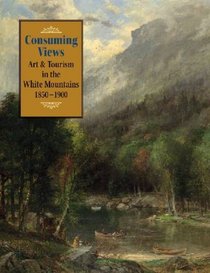Search -
HISTORICAL NEW HAMPSHIRE: Consuming Views: Art and Tourism in the White Mountains, 1850-1900
HISTORICAL NEW HAMPSHIRE Consuming Views Art and Tourism in the White Mountains 18501900
The White Mountains, solid and ageless peaks of granite, rise up across the landscape of northern New Hampshire. Their natural beauty has inspired visitors to the state for centuries. Generations of visitors to the mountains have found something new and meaningful for themselves and for the culture in which they live. — By the middle of the ninet... more »
The White Mountains, solid and ageless peaks of granite, rise up across the landscape of northern New Hampshire. Their natural beauty has inspired visitors to the state for centuries. Generations of visitors to the mountains have found something new and meaningful for themselves and for the culture in which they live. — By the middle of the ninet... more »
ISBN-13: 9781584656135
ISBN-10: 1584656131
Publication Date: 11/30/2006
Pages: 112
Rating: ?
ISBN-10: 1584656131
Publication Date: 11/30/2006
Pages: 112
Rating: ?
0 stars, based on 0 rating
Genres:
- Arts & Photography >> History & Criticism >> General
- Arts & Photography >> Art >> Instruction & Reference >> General
- Arts & Photography >> Art >> Painting >> General
- Arts & Photography >> Art >> Painting >> Landscape
- Arts & Photography >> Art >> General
- Travel >> United States >> Regions >> Northeast >> New England
- Travel >> United States >> States >> New Hampshire





